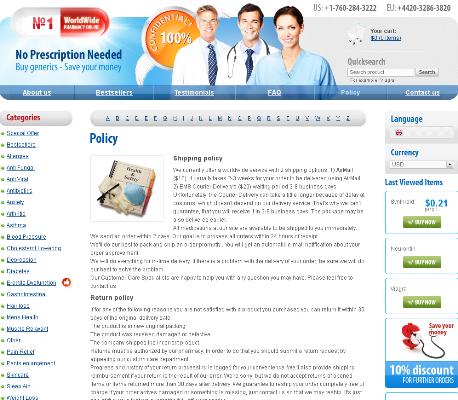Common Misconceptions about Mixing Buspar and Alcohol
Many people assume that because Buspar (buspirone) is prescribed for anxiety, pairing it with alcohol—a common social relaxant—shouldn’t cause any harm. This belief is widespread, partly because Buspar isn’t a sedative like some other anxiety medications. Stories circulate, often fueled by casual conversations and online forums, suggesting that the two can be safely combined without concern.
However, this perspective overlooks crucial differences in how Buspar interacts with the brain compared to substances like benzodiazepines. The myth persists because Buspar doesn’t typically cause the same immediate, overt reactions when taken with alcohol, such as heavy sedation or loss of coordination—leading users to think the risk is minimal. But subtle, longer-term impacts are rarely discussed outside medical consultations.
| Myth | Reality |
|---|---|
| Buspar and alcohol can safely be mixed | Even though effects are less dramatic, combining may worsen anxiety or impair thinking |
| Buspar doesn’t react with alcohol at all | Alcohol can interfere with Buspar’s intended effects and complicate treatment |
How Buspar Works Within the Body and Brain

Buspar, known generically as buspirone, is an anti-anxiety medication commonly prescribed to help people manage symptoms of generalized anxiety disorder. Unlike medications that cause sedation or dependency, buspar works differently in the brain. It acts primarily on serotonin and dopamine receptors, the chemical messengers involved in mood regulation and emotional balance.
When someone takes buspar, it gradually alters the communication between nerve cells, helping to reduce the sense of nervousness and worry. This steady and gentle effect sets it apart from other anti-anxiety drugs, such as benzodiazepines. Instead of producing an immediate tranquilizing response, buspar is designed for daily use, requiring consistent dosing over time.
By adjusting certain neurotransmitter levels, buspar helps to recalibrate the body’s stress response. This process supports emotional clarity and stability without some of the drawbacks associated with other anxiety medications.
What Really Happens When You Mix the Two
Mixing Buspar and alcohol can create unexpected effects in both the mind and body. While some believe taking Buspar lessens the impact of alcohol, the reality is more complex. Alcohol can amplify side effects like dizziness, drowsiness, and difficulty concentrating, making routine activities feel more challenging than usual.
As Buspar works to balance certain brain chemicals linked to anxiety, introducing alcohol disrupts this delicate process. Many users notice intensified sedation and even confusion, especially during tasks that require alertness. This unpredictable interaction can catch people off guard.
Furthermore, some may underestimate the risks, thinking mild doses are harmless. However, even small amounts of alcohol with Buspar may lead to dangerous impairment. Ultimately, the blend exposes you to unnecessary complications that outweigh any perceived benefits.
Potential Risks and Side Effects to Consider

Imagine taking buspar as prescribed, hoping for calmer days ahead, but then deciding to unwind with a drink. Even one glass of alcohol can tip the balance, dampening your body's coordination and making you groggier than usual. These effects often go beyond ordinary drowsiness—some people experience confusion, dizziness, or even difficulty concentrating, which can quickly affect daily life.
This combination may also quietly increase the risk of accidents or falls, especially for those already vulnerable. The sedative qualities of both substances can multiply, meaning you might feel overwhelmingly tired or lightheaded in situations where you need to stay alert. For drivers, this is particularly risky, as response times and judgment are easily impaired.
In some cases, alcohol might blunt the therapeutic benefits of buspar, making anxiety symptoms more difficult to manage. That’s not just disappointing—it can interfere with recovery and cause frustration or setbacks. Finally, unpredictable reactions are possible because everyone metabolizes medication and alcohol a little differently. What seems harmless for one person could lead to unexpected problems for another, making caution essential.
Why Some Myths Persist Despite Medical Advice
Stories from friends or social media about mixing Buspar and alcohol often gain traction because they feel personal and relatable. Sometimes, people trust anecdotes over official guidelines, even if those claims aren’t supported by medical evidence. Misinformation also spreads quickly online, which can reinforce old beliefs and create confusion about what’s truly safe. Additionally, the absence of immediate severe reactions in some users might falsely suggest that mixing these substances is harmless, despite expert warnings.
| Reason Myths Persist | Explanation |
|---|---|
| Anecdotes | Personal stories may seem more convincing than medical advice. |
| Online Misinformation | False or exaggerated claims can spread widely and quickly. |
| Lack of Immediate Effects | Some individuals experience no rapid side effects, reinforcing myths. |
Safe Practices and Expert Recommendations Explained
Picture this: you’ve just started Buspar for anxiety relief, but a social event with drinks is coming up. Should you skip your dose or have “just one” drink? Experts warn that because Buspar alters brain chemistry to reduce anxiety, mixing it with alcohol can lead to unpredictable results—such as increased dizziness, drowsiness, or impaired coordination. These reactions can be subtle or quite severe, putting you at unnecessary risk.
Healthcare professionals consistently recommend avoiding alcohol while on Buspar to ensure maximum medication effectiveness and personal safety. If you’re unsure or tempted, it’s crucial to discuss your habits honestly with your doctor, who can provide tailored advice and support strategies that fit your lifestyle.

